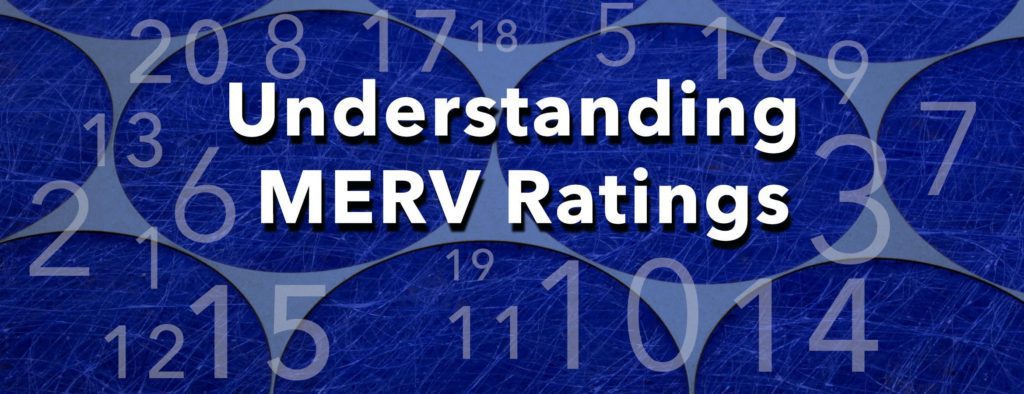Minimum Efficiency Reporting Value is a metric for selecting an air filter. Commercial air filters, industrial air filters, and residential air filters are rated on this scale. A higher MERV value does not necessarily mean that this is the best filter for your air filtration system, though. Cost must be balanced with purpose, and the design of the air filtration system must also be considered.
What is MERV?
Minimum Efficiency Reporting Value (MERV) indicates how effectively air filters captures airborne particulates. Developed by the American Society of Heating, Refrigerating, and Air-Conditioning Engineers (ASHRAE), MERV scores this effectiveness on a scale from 1 – 20. Higher MERV values indicate higher effectiveness. MERV ratings apply to commercial air filters, industrial air filters, and residential air filters.
The Best MERV Rating for Air Filters
Is a higher MERV rating better? This depends on the rest of the question. A higher MERV rating means that an air filter is better at capturing tinier particles. This does not, however, mean that a higher MERV rating is better for your air filtration system. The best MERV rating and the best air filter for your air filtration or HVAC system depends on several other factors, all of which must be taken into consideration for the life and health of your system and building occupants.
MERV Scale
A lower MERV value indicates that an air filter captures larger contaminants. As the values increase, the size of contaminants captured decreases.
MERV 1 – 4
An air filter with MERV filter rating of 1 – 4 captures larger particles, such as:
• sanding & spray paint dust,
• dust mites,
• pollen,
• textile & carpet fibers, and
• dirt.
These filters are generally the least expensive and are suitable for residential, low-traffic commercial buildings as well as to protect industrial equipment.
MERV 5 – 8
Air filters rated MERV 5 – 8 capture contaminants like:
• powders,
• cement dust,
• hair spray, and
• dusting/cleaning aids.
These air filters are the best value for medium to heavily trafficked industrial and commercial workplaces, residential, paint booth and finishing operations.
MERV 9 – 12
Commercial air filters designed for certain settings where air quality matters most are rated MERV 9 – 12. Some residential air filters fall within this range, as well. These air filters can remove:
• automobile emissions,
• lead dust,
• welding fumes,
• coal dust,
• milled flour,
• paint pigments, and
• insecticide dust.
These air filters are best suited for high-end residential areas, industrial workplaces and commercial buildings.
MERV 13 – 16
MERV air filters rated 13 – 16 are primarily used to eliminate pollutants such as:
• most tobacco smoke,
• droplet nuclei (sneeze),
• bacteria, and
• cooling oil.
These air filters are used in commercial buildings, smoking lounges, hotels and casinos, hospital inpatient care as well as general surgery.
MERV 17 – 20
HEPA and ULPA air filters fall within the range of MERV 17 – 20. These filters capture tiniest of particles, measuring less than .3 microns, like carbon dust, combustion smoke, carcinogenic and radioactive material. HEPA an ULPA grade air filters are required in cleanrooms, high risk surgery rooms, and environments where hazardous materials are utilized.
Summary
When choosing a commercial air filter or industrial air filters, consider first the design of the air filtration system and the building’s use. Most residential settings are fine with air filters within the MERV 1 – 4 range, unless persons with compromised respiratory or immune systems reside in the building.
For more information on MERV air filter ratings and a full selection of commercial and industrial air filters, contact Engineered Filtration Systems (EFS). Or, visit us on the web.

